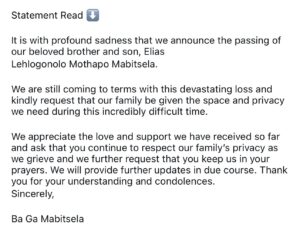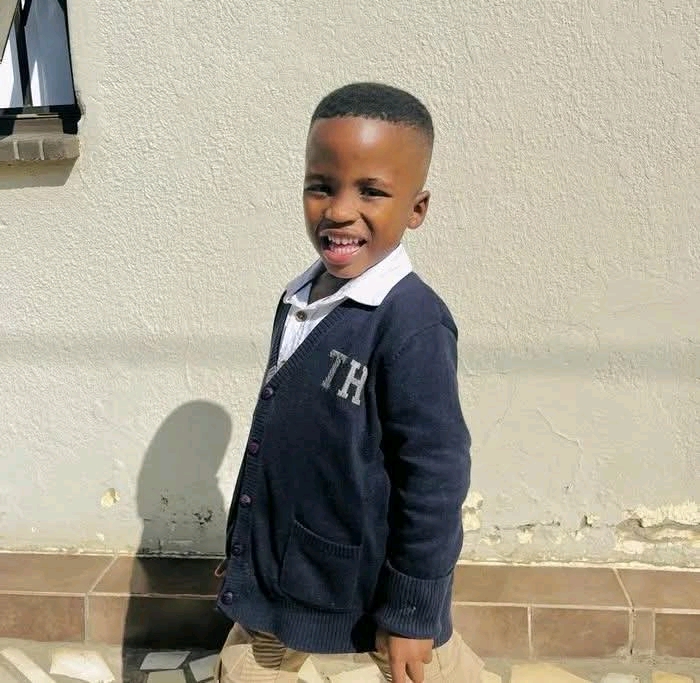
The recent passing of Ratile’s husband has sparked controversy after his family issued a statement that noticeably omitted any mention of him as a beloved husband. Instead, the statement only referred to him as a son and a brother, raising questions about the dynamics between Ratile and her in-laws.
Suicide is always a heartbreaking tragedy, leaving behind grief, unanswered questions, and sometimes, deep-seated family tensions. In this case, the family’s decision to exclude Ratile from their tribute suggests unresolved issues, possibly related to their relationship or marital struggles. While some argue that this was an intentional slight, others believe it may have been a reflection of the circumstances surrounding their marriage.
### **The Power of Public Statements**
When a family loses a loved one, especially in such a tragic manner, public statements are often carefully crafted to reflect their sentiments. However, these statements can sometimes expose underlying conflicts. In many cultures and traditions, a spouse is given a significant place in public remembrances. The absence of this acknowledgment in Ratile’s husband’s case raises speculation about how his family viewed their marriage.
Even if they were in the process of divorcing, Ratile was still legally his wife at the time of his passing. This fact alone would usually warrant a mention in a formal statement. By choosing to exclude her, the family may have been sending an indirect message about their stance on the marriage, or they may have been reflecting their late son’s personal struggles and relationship dynamics.
### **Family Tensions and Grief**
In-laws can sometimes be difficult to navigate, especially in times of grief. When a person dies, family members often react based on their emotions and personal experiences with the deceased. If Ratile’s relationship with her husband’s family was strained, this could explain why she was left out of the statement. It is not uncommon for in-laws to take sides, especially if a couple was experiencing marital issues.
However, grief should ideally bring people together rather than deepen divides. Losing a husband is already devastating, and feeling excluded from the mourning process can add another layer of pain for the surviving spouse. Families that choose to handle such situations with empathy and fairness often create a more supportive environment for everyone involved.
### **The Reality of Divorce and Public Perception**
Many have pointed out that the couple’s potential divorce should not have mattered in this context. A spouse remains a significant part of a person’s life, even if they were in the process of separating. Public statements in such situations often acknowledge the complexity of relationships rather than erasing them entirely.https://twitter.com/NMUZZR/status/1889791914548896016?s=19
While it is impossible to know the full story behind the family’s decision, the omission speaks volumes. Whether it was intentional or not, it has fueled conversations about how in-laws handle grief and the treatment of spouses after death. In the end, tragedies like these should serve as a reminder to handle loss with grace, empathy, and respect for all who were part of the deceased’s life.







